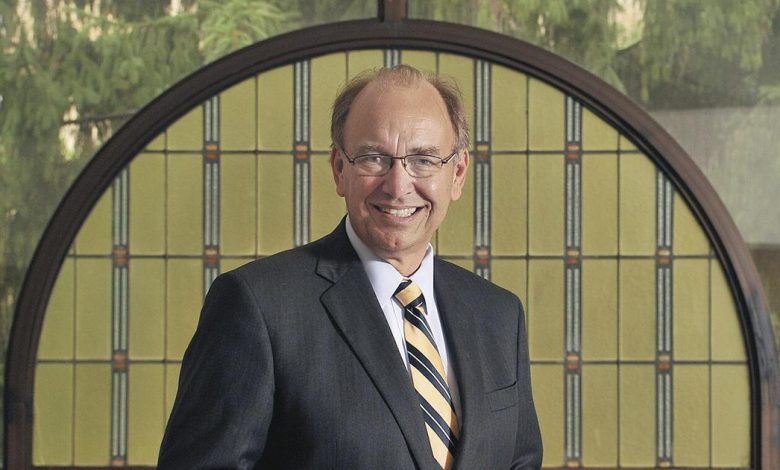One President’s Playbook for Public Statements

Like a lot of college presidents, Steven C. Bahls knows what it’s like to wake up to an inbox full of angry emails.
Bahls, who retired as president of Augustana College earlier this month, has spoken in support of some issues that might be seen as controversial, such as supporting same-sex unions in the college chapel, explicitly defending free speech for conservative students on campus, and opposing President Donald J. Trump’s efforts to end legal protections for undocumented minors, known as Dreamers.
For some presidents, those positions could cause tensions with their colleges’ governing board. But not at Augustana, in large part because Bahls and the trustees agreed to a set of guiding principles on what topics the president and other administrators will speak about publicly.
In a Chronicle survey of presidents, respondents did not often identify their board as a source of concern about their public statements, except on the issue of state politics. But in interviews, many campus leaders said they still take care not to surprise their boards.
“I write the statement, give the board a pre-statement, and I inform them a bit in advance of what I am putting out,” said Ora Hirsch Pescovitz, president of Oakland University, a public institution where the board members are appointed by the governor. “I don’t ask permission because I have a board with eight people,” she said, and it’s too hard to find agreement if you have that many people trying to edit a statement together.
While board members may not always share Pescovitz’s views, she said, they have, so far, supported her
Bahls said he wrote the guidelines at Augustana after he had spoken in favor of blessing same-sex unions in the campus chapel. The guidelines “were not forced on me,” he said. “The board chair and I thought we should be more deliberate.”
The idea for the guidelines came from Paul C. Pribbenow, president of Augsburg University in Minneapolis, who said he first drafted his own principles following a 2012 statement in support of same-sex marriage.
Augustana’s framework, which Bahls shared with The Chronicle, directs the president and other college officials to consider whether and how an issue relates to the college’s mission and values or its strategic plans before taking any position. Administrators must also consider whether the college can “participate in a non-partisan manner” and “if there is an effective platform” from which to make a statement.
The guidelines also lay out how persistently the college will engage on a topic based on the centrality of its connection to the institution’s mission and values. A strong relationship — such as “commitment to diversity and inclusion, safety or well-being issues impacting our students and the importance of freedom of expression on campus” — means Augustana will take strong public stances on that topic.
Local government issues that affect the college are a lower priority, and in those cases, the college opts to communicate with specific individuals or agencies.
For some topics, someone besides the president may be the right person to speak publicly, the guidelines recommend. In other instances, the college will show its support by joining a statement with other institutions.
On matters such as partisan elections, “Augustana defers to others more suited to speak,” the guidelines state.
The document isn’t meant to restrict everything the president talks about, Bahls said: He was free to speak his mind when teaching, for example, or during office hours.
When a topic fits within the guidelines, it allows the president to make a strong statement, rather than one that seeks to address an issue by being completely anodyne. When colleges began to respond to the murder of George Floyd, Bahls said, some of the statements were “mealy-mouthed.”
On an issue like that, college presidents shouldn’t hold back, he said.
“I do think there’s a danger here of mandating rules as opposed to setting guidelines,” Bahls said. “It’s dangerous when a board puts a straightjacket on a president about what they say.”
Source link






